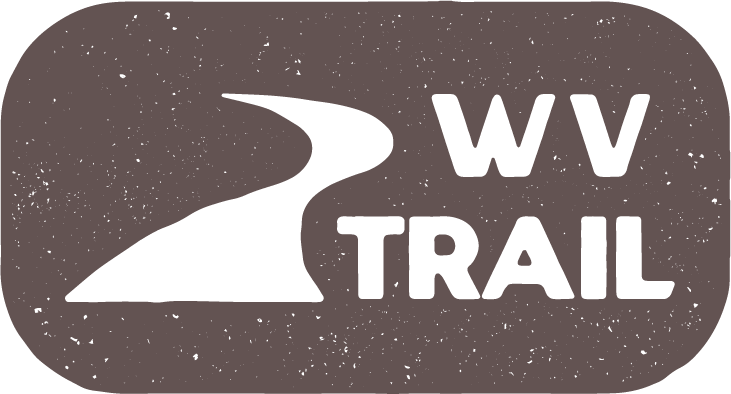Board of Directors
WV TRAIL is guided by a highly knowledgeable Board of Directors with extensive expertise in non-motorized trails across West Virginia. Their collective experience in trail development, advocacy, and policy ensures strategic leadership and informed decision-making as we work to enhance outdoor recreation opportunities.
-
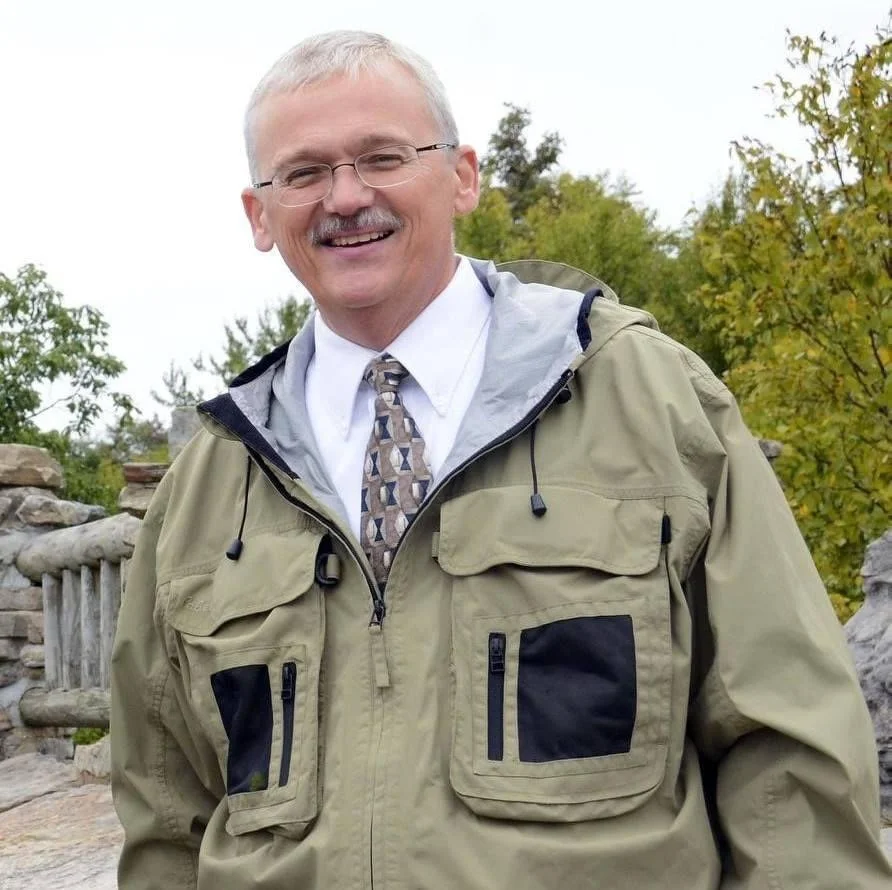
Sam England
Executive Director
With over 4 decades of State Park work, Sam was appointed Chief of the WV State Parks System in 2014. Along the way he worked at Twin Falls, North Bend, Moncove Lake, Greenbrier Forest and Stonewall Resort State Park. He retired as Chief of State Parks in 2019 but continued to work part time on special assignments throughout the park system.
In 2020, he returned to fulltime work as the General Manager of Canaan Valley Resort until his retirement in 2022. Currently, Sam serves as the Executive Director of WV TRAIL.
He currently also serves on the boards of the Statewide State Park Foundation, the State Parks Endowment Fund and the Statewide Physical Activity Plan as well as other park foundations.
-

Kelly Pack
Co-Chair
For more than 20 years, Kelly has supported dozens of U.S. communities to improve quality of life, public health, and local economic growth through community and trail development. Her early years in community development and outdoor recreation began at West Virginia University (WVU), where she led backpacking trips for the Outdoor Recreation Center and developed technical assistance resources for the Northern WV Brownfields Assistance Center. As the Senior Director of Trail Development for Rails-to-Trails Conservancy (RTC), Kelly convened and collaborated with diverse stakeholders to advance trail building and active transportation policy at the local, state, and national levels. During her 17+ years at RTC, Kelly also worked closely with community partners in West Virginia to conduct corridor assessments, advance rail-trail planning, and advocate for public investment in trails, active transportation, and outdoor recreation. Additionally, she co-managed RTC’s leadership support of the Industrial Heartland Trails Coalition (IHTC) for nearly 10 years and led the effort to complete a comprehensive planning and action strategy for the Parkersburg to Pittsburgh Corridor, a major spine of the IHTC network. Kelly continued to serve WV communities as a Community Planner for the National Park Service’s Rivers, Trails, and Conservation Assistance Program (RTCA) in 2024-2025. She holds a M.S. in Recreation, Parks, and Tourism Resources from WVU. Kelly lives with her family in Pittsburgh, PA, frequently visits family and friends in WV, and loves biking and walking in the hills of Appalachia and swimming in its rivers.
-
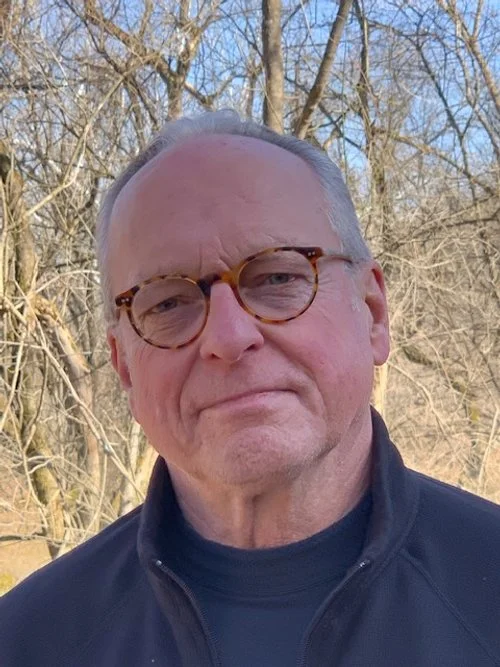
Kent Spellman
Co-Chair
Kent’s work with trails in WV dates to 1988 when he was recruited to help acquire a 61-mile section of abandoned CSX rail corridor between Parkersburg and Clarksburg. That led to the creation of the North Bend Rails to Trails Foundation, which he served as Vice-Chair and then Chair after the passing of founding Chair Dick Bias. Kent had a diverse career that included stints as a design-build contractor, newspaper editor and publisher, economic development professional, and founding executive director of the WV Community Development Hub, the state’s leading community development organization. After retiring from the Hub, he worked as a consultant for six years with the Rails-to-Trail Conservancy as his primary client. In retirement, Kent continues to work in community and organizational development as a volunteer Board member of numerous non-profits, including WV TRAIL, Harrison Recreational Trails, and the Mountaineer Trail Network Recreational Authority.
-
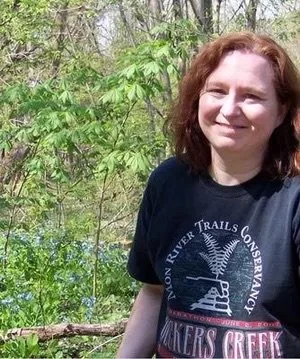
Ella Belling
Vice Chair
Ella became the first Executive Director for the Monongahela River Trails Conservancy in 2000 and helped develop and implement a trail management plan that includes many agency and community partnerships.
Since then the Mon River and Deckers Creek Trails have expanded from a 29-mile trail to 48-mile trail network that spans three counties in North Central West Virginia. The trails have been nationally recognized as models for trail management and design. The West Virginia Department of Highways and MRTC were honored with national recognition from the American Association of State Highway and Transportation Official (AASHTO) in the form of AASHTO’s “2000 Award of Excellence” and in 2006 the trails were designated National Recreation Trails.
In its transition from an organization primarily focused on trail construction to trail maintenance, Ella assisted in negotiating a regional trail maintenance program that is overseen by the Monongahela River Trails Conservancy. In July of 2005, MRTC entered into an innovative partnership with city and county government agencies to provide for maintenance of the entire trail. This arrangement has allowed for the hiring of a full time trail maintenance staff person and one seasonal trail maintenance worker to provide routine trail maintenance.
Ella also has worked closely with other trail groups to link the Mon River and Deckers Creek Trails with neighboring developing rail corridors. As the Fayette County Commission negotiated with CSX to purchase the Sheepskin Trail corridor in Pennsylvania, they were confronted with new soil management requirements from CSX. Realizing that this would also greatly impact the future of new rail-trails in West Virginia, Ella took the lead in order to draw attention to this new rail-trail development challenge. She has spoken at a WV Brownfield Conference, met with CSX representatives, and initiated a working group that includes leaders from the WV Department of Environmental Protection, WV Northern Brownfields Center, WV Department of Transportation, the National Rails to Trails Conservancy, National Pak Service RTCA program, and groups working to acquire rail-trail corridors. This group is aiming for an outcome that will be a practical, pro-active process for meeting the CSX requirements that will not stall rail-trail purchase negotiations or overwhelm groups trying to build rail-trails in their community.
Ella became interested in the outdoors and conservation at an early age, camping with her family in the beautiful state parks of West Virginia. After college she began interning with the US Fish and Wildlife Service at National Wildlife Refuges in Virginia, Nevada, Oregon and Guam. Upon returning to West Virginia to pursue a M.S. degree at West Virginia University, Ella began volunteering for the Mon River Trails Conservancy and was excited to have a paid opportunity to help expand the local rail-trails length and popularity. MRTC has turned an abandoned rail corridor into a trail system that is repeatedly described as the best thing to happen in the region of North Central West Virginia in the last 50 years.
-

Bre Shell
Secretary
Bre Shell, AICP is an urban planner based in Huntington, West Virginia. Over her 12-year tenure with the City of Huntington’s Planning Department, she transformed the office from a one-person operation into a robust five-person team and served as Planning Director. Under her leadership, the city completed two Comprehensive Plan updates and modernized its Zoning Ordinance to align with a forward-thinking vision for growth and livability. A champion for active transportation and public health, Bre led the expansion of the Paul Ambrose Trail for Health (PATH) while developing a long-term maintenance strategy to ensure its sustainability. Working collaboratively, she has shaped several complete streets plans, multi-modal transportation design and construction projects, including the redesign of a key state highway corridor into a more accessible, people-centered gateway into the city. Bre has served on the West Virginia Complete Streets Advisory Board and currently leads as President of the West Virginia Chapter of the American Planning Association. Currently she is raising her three outdoor loving kids while advocating for safe streets and trail networks in Huntington and across the state.
-

Dennis Strawn
Treasurer
Dennis Strawn has 30+ years of experience in walking and bicycling advocacy, starting out as the Advocacy Coordinator for the Mountain State Wheelers Bicycle Club, for which, he is still an active member. He enjoys traveling to other states and learning their successes so he can bring them back to West Virginia. He currently serves as Treasurer for WV Trail. Dennis also serves on the Complete Street Advisory Board, the Regional Intergovernmental Council’s Transportation Technical Advisory Committee and Bicycle and Pedestrian Advisory Committee. CSAB is tasked with advising WVDOT on policies concerning bicycle and pedestrian improvements to the transportation system. TTAC reviews and approves transportation improvement amendments and discusses policy for motorized, public transit and non-motorized improvements to the transportation system. BPAC works with the RIC staff on improving bicycle and pedestrian access at the planning level.
-
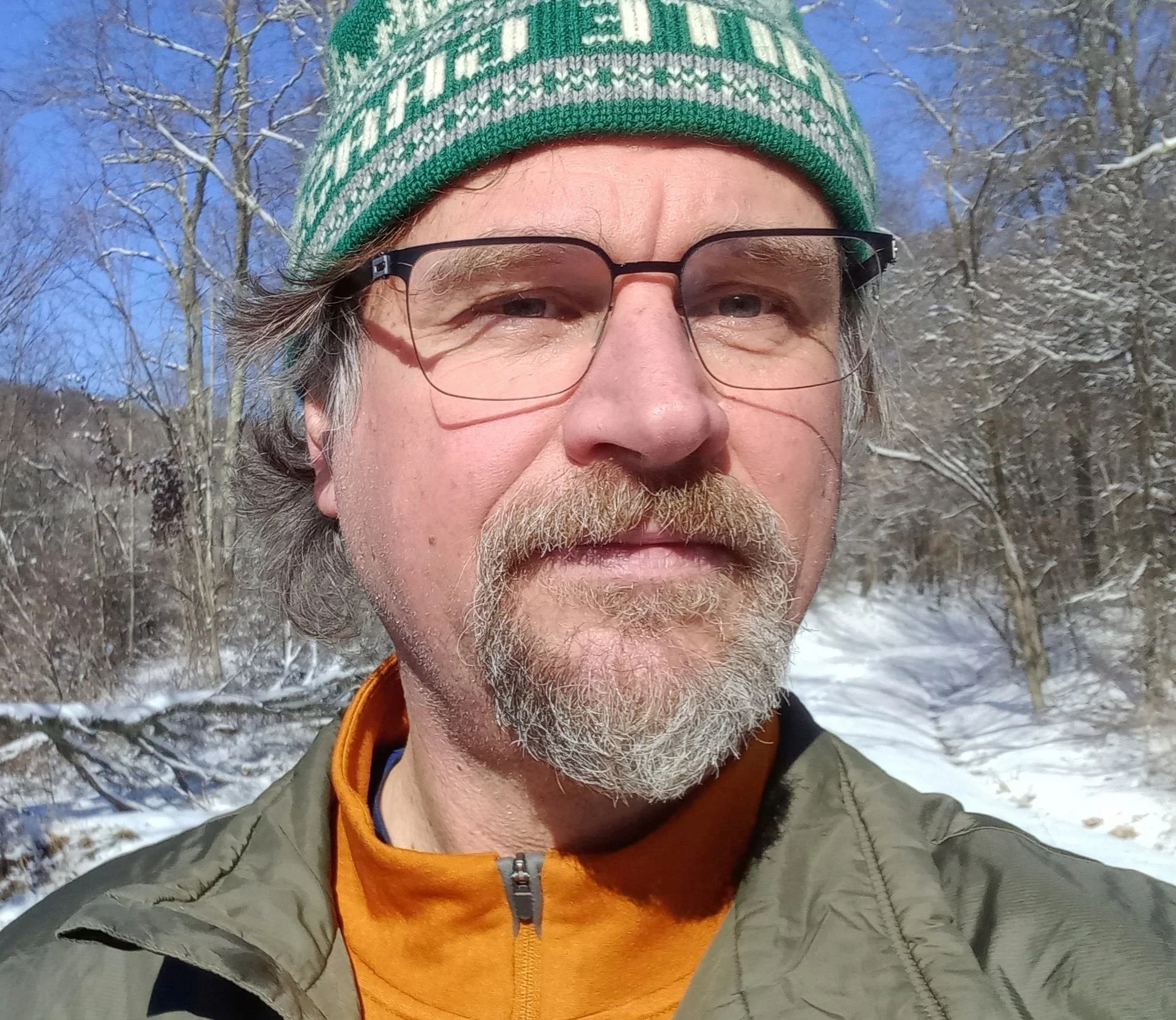
Rick Landenberger
Board Member
Rick has been working in natural resource management since the mid-eighties, when he completed an undergraduate internship with the New York State Department of Environmental Conservation. Working in the Adirondacks on trail systems in the state’s extensive Wilderness system, he made that experience the basis for his MS in Forest Resource Management at the SUNY College of Environmental Science and Forestry at Syracuse where he studied Wilderness Management, forest recreation, soils, and hydrology, to better understand recreational impacts on trails and campsites. After working in the Boundary Waters Canoe Area Wilderness, the Otter Creek Wilderness, the Laurel Fork North and South Wilderness, and the Dolly Sods Wilderness for the US Forest Service, Rick returned to school for a Ph.D. in Forest Science from West Virginia University, followed by a post-doc in invasive species dynamics. Since then, Rick has held several academic positions and has done research in remote sensing, invasive species dynamics, geospatial science and technology education, and in the non-profit world as an Executive Director of AmericaView, a remote sending research and education organization funded by the USGS. He now works as the Science and Management Specialist for the West Virginia Land Trust, working on protected area management, trail system planning, design, and management, and is Associate Professor of Geography at West Virginia University.
-

Ken Tawney
Board Member
Ken Tawney is a semi-retired lawyer with Jackson Kelly PLLC in Charleston. He lives in Elkview. He serves as President of Elk River Trail Foundation, and also serves on the Board of Directors of WV Trails, Inc. He is a past president of 25045 – A New Clendenin, Inc.and still serves on its board. Ken also currently serves on the statewide Steering Committee for the USDA’s Rural Partners Network. He is a former officer of Governor’s One Shot, Inc., and formerly served on the board of United Way of Central West Virginia. His wife, Cyndi, is publisher of Elk River Living magazine.
-

Amanda Pitzer
Board Member
Amanda, Executive Director, Friends of Cheat, is originally from Erie, Pennsylvania, where she grew up catching crayfish in backyard creeks. She studied at Allegheny College, and participated in a variety of community art and environmental initiatives.
Following a year of teaching high school in rural southwest Virginia, Amanda moved to Preston County in 2006. From 2007-2010 she worked for Friends of Deckers Creek as their Education Coordinator, building the foundation for their very successful youth programs and implementing grant-funded initiatives for environmental service-learning initiatives. In 2009, Amanda was awarded the “Guiding Light” award from the West Virginia Watershed Network for her enthusiasm and dedication to environmental education outside of the Deckers Creek watershed.
Amanda began her tenure with Friends of the Cheat in July 2010. Under her leadership, the organization completed the EPA-funded Targeted Watershed Initiative in Muddy Creek, representing over 7 years of work and over $1.5 million dollars in AMD remediation and associated research. FOC has installed five new AMD treatment systems, executed retrofits to four existing systems, and completed a 6 year work-share partnership with WV DEP’s Special Reclamation program. In 2016, the EPA declared the Cheat River “reborn” as FOC now shifts its focus to restoring AMD-impacted tributaries.
Amanda has increased FOC’s involvement with Source Water Protection Planning and land conservation, most notably participating in the coalition that finally accomplished the preservation of 3,836 acres of the Cheat River Canyon. On the recreation side, the organization has secured nearly 20 miles of rail corridor for conversion to rail-trail, founded the ~40-mile Upper Cheat River Water Trail, and raised over $60,000 for maintenance of whitewater access points and critical county roads. Further, in late 2018 FOC was awarded over $3 million dollars to construct the 8-mile Cheat River Rail-Trail, including the remediation of contaminated soils. This project, known as RE/CREATE, includes funding for an acid mine drainage learning park at the Lick Run portals AML site and Trail Town economic development programming across Preston County.
As the organization turns 25, Amanda has lead a push to diversify funding and projects. This pivots the organization to address broader pollution impacts, engage in proactive water quality protection, and lead the removal of the low-head dam on the Cheat River at Albright. The organization’s visibility and community engagement has also grown through education initiatives, and outreach to Tucker County and Cheat Lake.
Amanda and her family live below a high wall on Scotch Hill in southern Preston County. She is an active community member having served on the Preston County Litter Control Board and Preston County Solid Waste Authority. In 2017, Amanda was named one of West Virginia’s 50 “Wonder Women” by WV Living Magazine. In 2020, she was awarded the national River Hero award following in the footsteps of her predecessor at FOC, the late Keith Pitzer.
-

Mitch Lehman
Board Member
Mitch moved to West Virginia in 2019 to pursue rock climbing in the New River Gorge and complete a Business Management degree at WVU Tech in Beckley. After graduating, he worked as a rock climbing guide in both Acadia National Park and the New River Gorge National Park, gaining valuable experience in outdoor leadership and recreation management. This passion led him to a role at the Region 4 Planning and Development Council in Summersville, where he served as a Project Specialist focused on outdoor recreation development and regional revitalization.
Mitch now serves as the Director of Outdoor Economic Development for the City of Beckley. In this role, he leads the Beckley Outdoors initiative—a community-driven effort to leverage the area's outdoor recreation assets as a catalyst for economic growth, downtown revitalization, and population retention.
An avid rock climber, mountain biker, and skier, Mitch spends as much time as possible exploring the outdoors and sharing his love for wild places.
